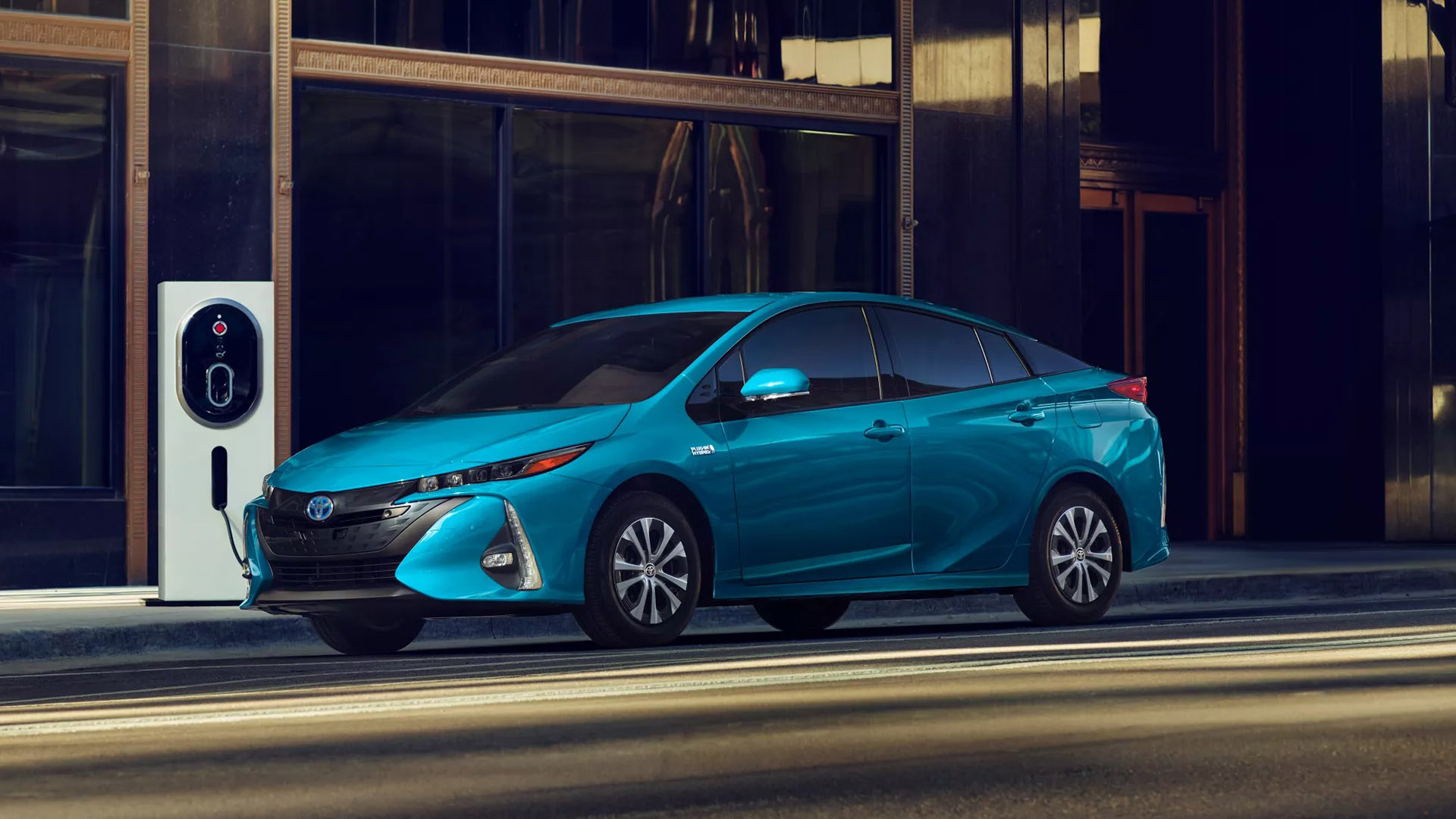

Well, that didn’t take long. Amid the recent rush of news reports that gas prices in the U.S. are climbing to their highest levels since the Great Recession, American car owners are already looking at greener, more fuel-efficient options. But they may not have much luck if they’re actually in the market for a gas-sipping (or electron-driven) option.
Car-buying website Edmunds.com announced on Thursday that the number of potential buyers on their site who are searching for hybrid, plug-in hybrid and battery electric cars is up 39 percent over the previous month, and 18 percent over the previous week. Of the shoppers who visited Edmunds during the week ending March 6, the website said, 17.9 percent researched a “green vehicle.”
One thing that’s key to note is that the data in question is for the week ending March 6, which is a few days before President Biden announced the U.S. will ban oil imports from Russia in response to that country’s invasion of Ukraine. In his speech announcing the move, Biden was very clear that gas prices would likely go up as a result, so presumably, the scramble for greener cars will only get more intense in the next few weeks.
Additionally, Cars.com reports that searches for new and used EVs increased by 112 percent as of March 8 vs. the week prior. New EV searches on that site are up by 83 percent and searches for used models are up 130 percent, with many buyers likely balking at the high price of several brand-new electric cars.
But as we reported Wednesday, while gas spikes have historically led buyers to switch to more fuel-efficient options—as they’re clearly seeking to do here—the pandemic-driven semiconductor and materials shortage has severely limited the supply of new cars. Car prices, too, are at record levels, so even if you can find something you want to buy, you’ll be paying out the nose for it in ways that you weren’t in 2019. The average new car cost rose to $46,085 in February, and as Jessica Caldwell, Edmunds’ executive director of insights, noted in an email, modern EVs tend to be more expensive options. As Edmunds notes, if you can even find one, the average transaction price for a new EV was $60,054 in February (though it’s unclear how tax incentives figure into that number.)

“Green vehicles—notably EVs—have grown increasingly top of mind for American consumers over the last year as more automakers have generated buzz around new products and made strong commitments to an electrified future. But the major surge in interest of late is certainly more of a reaction to record gas prices sparked by the war in Ukraine,” Caldwell said. “Unfortunately, making an EV purchase is not particularly easy to do right now amid inventory shortages, and price-sensitive consumers most affected by gas price hikes will likely find that making the switch is also a bit out of financial reach due to the premiums that these vehicles command.”
So while buying an EV will save you gas in the long run, and is increasingly palatable for environmental (and performance) reasons, right now, it’s no guarantee that you will actually save money. And again, that’s if you can even find one at a reasonable price. The promising 2022 Kia EV6 that we recently tested came in at $57,115 in loaded AWD form, and it’s not been uncommon to see some in the $60,000 to $70,000 range. To make matters worse, car dealers are going hog wild with the price markups right now, even when automakers are begging them to cut it out.
With all that in mind, what do you do if you want to buy a new car right now? There are a number of strategies you can employ, but the key is to be flexible. If you don’t need a new car immediately and can wait to make a purchase, you probably should go that route. Otherwise, be flexible on what models and options you want, and be prepared to look further outside your area than you normally would. Used car prices have gotten just as high, so the same applies on that front. And remember: If you’re buying a new EV, you probably shouldn’t be doing so right now if cost savings are your primary goal.
“There are very few scenarios in today’s market in which the impulse purchase of a new vehicle—EV or not—just to save on fuel costs will result in savings. Once you factor in the monthly payment and insurance costs, you’re likely going to be spending more than you will save in gas,” Ivan Drury, Edmunds’ senior manager of insights, said in an email. “But if you’re already in the market for a replacement vehicle, you could view this surge in fuel prices as a reminder that, although many other aspects of vehicle ownership have set monthly costs, fueling can vary significantly. Since purchasing the most fuel-efficient vehicle possible is the only way to minimize this variable, now might be the time to consider a partially or fully electrified powertrain.”
In other words, a gently used hybrid may be a better option if you’re sweating it at the pump. Or a bus pass.
Got a question for the author? Hit me up at patrick@thedrive.com.